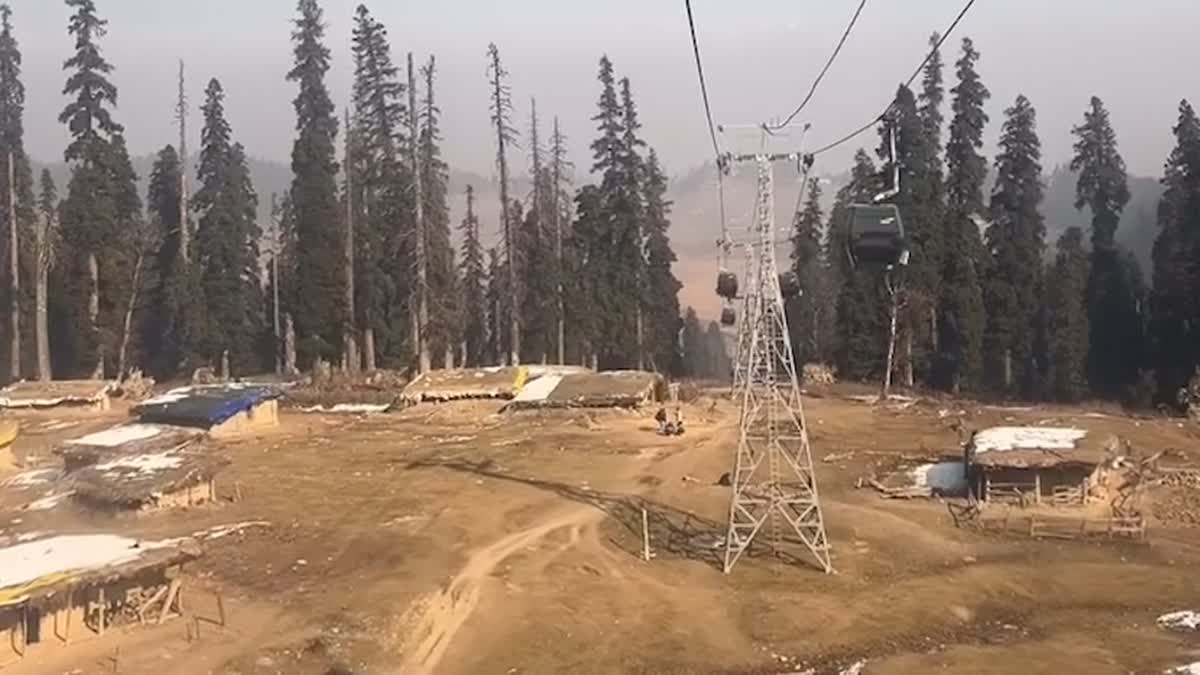Srinagar (Jammu and Kashmir): In a surprising departure from the norm, Jammu and Kashmir, renowned for its winter wonderland, experienced an unusual snowless winter in January 2024 recording the driest and warmest conditions in over four decades, according to data from the Meteorological Centre Srinagar.
The region, which typically blankets itself in snow during December and January, faced its driest and warmest conditions in 43 years, leading to concerns about the environmental impact and repercussions on various sectors. The Meteorological Centre Srinagar's data revealed that several parts of Jammu and Kashmir, including the capital city Srinagar, saw a rise in temperature and a significant deficit in rainfall.
The Indian Meteorological Department (IMD) reported that Srinagar city encountered its second driest January in the past four decades, with only 3.0 mm of precipitation recorded throughout the month. The last time Jammu and Kashmir witnessed such low precipitation in the winter capital was in January 2018 when only 1.2 mm of rainfall or snow occurred during that period.
The mean maximum temperature (Tmax) recorded in January raised eyebrows, with Srinagar station registering 11.9 degrees Celsius, Gulmarg in north Kashmir at 5.7 degrees Celsius, and Banihal in Ramban district at 16.9 degrees Celsius, the data said. Jammu city, too, made history by recording its lowest mean maximum temperature for January in over four decades as per the data.
The IMD described January 2024 as one of the driest and warmest in the last 43 years for most stations in Jammu and Kashmir, except those in the plains of Jammu (Jammu, Samba, and Kathua). On the flip side, Jammu witnessed a mean maximum temperature of 13.4 degrees Celsius in January, the lowest since 1983, raising concerns about the long-term climatic changes in the region.
The mean minimum temperatures for January observed over Srinagar, Jammu, Gulmarg, and Banihal were recorded at minus 3.2 degrees Celsius, 5.5 degrees Celsius, minus 3.9 degrees Celsius, and 0.1 degrees Celsius, respectively. "The 2024 mean Minimum Temperature (Tmin) is one of the highest for Gulmarg in the last 43 years," highlighted the MET centre, underlining the unusual warmth that has gripped the region during this winter.
As scientists and meteorologists delve into the intricacies of this unprecedented weather pattern, concerns are being raised about the potential consequences on agriculture, water resources, and the overall ecosystem in the picturesque region of Jammu and Kashmir.



